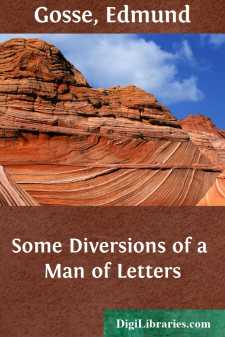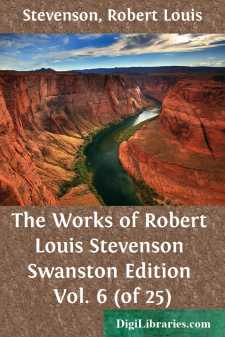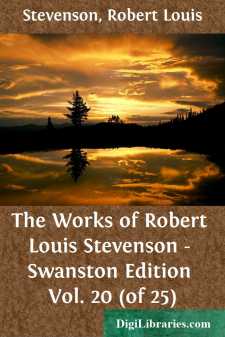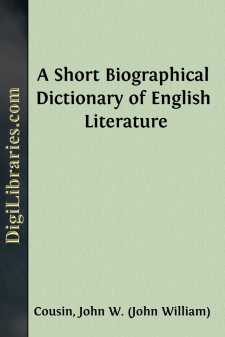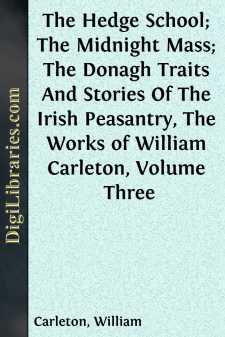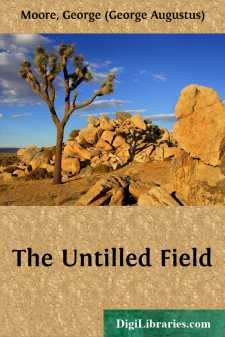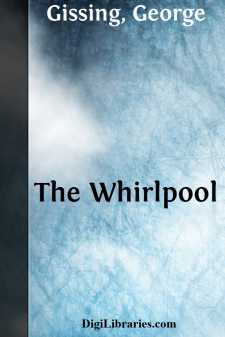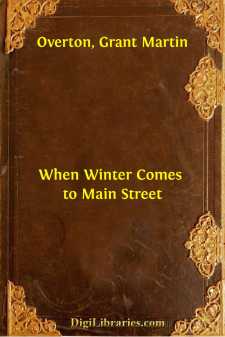Literary Collections
- American 84
- Ancient, Classical & Medieval 14
- Asian 1
- Australian & Oceanian 1
- Canadian 55
- Continental European 121
- English, Irish, Scottish, Welsh
- Essays 160
- General 24
- Letters 46
- Middle Eastern 1
English, Irish, Scottish, Welsh Books
Sort by:
by:
Edmund Gosse
PREFACE: ON FLUCTUATIONS OF TASTE When Voltaire sat down to write a book on Epic Poetry, he dedicated his first chapter to "Differences of Taste in Nations." A critic of to-day might well find it necessary, on the threshold of a general inquiry, to expatiate on "Differences of Taste in Generations." Changes of standard in the arts are always taking place, but it is only with advancing...
more...
CHAPTER I THE OLD SEA-DOG AT THE “ADMIRAL BENBOW” Squire Trelawney, Dr. Livesey, and the rest of these gentlemen, having asked me to write down the whole particulars about Treasure Island, from the beginning to the end, keeping nothing back but the bearings of the island, and that only because there is still treasure not yet lifted, I take up my pen in the year of grace 17—, and go back to the...
more...
A TALE OF A LION RAMPANT It was in the month of May 1813 that I was so unlucky as to fall at last into the hands of the enemy. My knowledge of the English language had marked me out for a certain employment. Though I cannot conceive a soldier refusing to incur the risk, yet to be hanged for a spy is a disgusting business; and I was relieved to be held a prisoner of war. Into the Castle of Edinburgh,...
more...
by:
Henry Coppee
Chapter I. The Historical Scope of the Subject. . . . . . . . . . Literature and Science. There are two words in the English language which are now used to express the two great divisions of mental production—Science and Literature; and yet, from their etymology, they have so much in common, that it has been necessary to attach to each a technical meaning, in order that we may employ them without...
more...
ABBOTT, JACOB (1803-1879). —Educationalist and miscellaneous author, b. at Hallowell, Maine, ed. at Bowdoin Coll. and Andover, entered the ministry of the Congregational Church, but was best known as an educationist and writer of religious and other books, mainly for the young. Among them are Beechnut Tales and The Rollo Books, both of which still have a very wide circulation. ABBOTT, JOHN STEVENS...
more...
by:
William Carleton
THE HEDGE SCHOOL. There never was a more unfounded calumny, than that which would impute to the Irish peasantry an indifference to education. I may, on the contrary, fearlessly assert that the lower orders of no country ever manifested such a positive inclination for literary acquirements, and that, too, under circumstances strongly calculated to produce carelessness and apathy on this particular...
more...
CHAPTER I It was a beautiful summer morning, and Rodney was out of his bed at six o'clock. He usually went for a walk before going to his studio, and this morning his walk had been a very pleasant one, for yesterday's work had gone well with him. But as he turned into the mews in which his studio was situated he saw the woman whom he employed to light his fire standing in the middle of the...
more...
Chapter I. The weekly bill. Smith's Hotel, 10 Dovermarle Street. Here we are in London again,—Francesca, Salemina, and I. Salemina is a philanthropist of the Boston philanthropists limited. I am an artist. Francesca is— It is very difficult to label Francesca. She is, at her present stage of development, just a nice girl; that is about all: the sense of humanity hasn't dawned upon her...
more...
by:
George Gissing
CHAPTER 1 Harvey Rolfe was old enough to dine with deliberation, young and healthy enough to sauce with appetite the dishes he thoughtfully selected. You perceived in him the imperfect epicure. His club had no culinary fame; the dinner was merely tolerable; but Rolfe's unfinished palate flattered the second-rate cook. He knew nothing of vintages; it sufficed him to distinguish between Bordeaux and...
more...
Chapter I THE COURAGE OF HUGH WALPOLE i Says his American contemporary, Joseph Hergesheimer, in an appreciation of Hugh Walpole: “Mr. Walpole’s courage in the face of the widest scepticism is nowhere more daring than in The Golden Scarecrow.” Mr. Walpole’s courage, I shall always hold, is nowhere more apparent than in the choice of his birthplace. He was born in the Antipodes. Yes! In that...
more...


